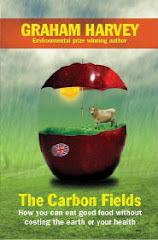
On a visit to
It's called Alimentarium and it's housed in a rather fine old building that used to be the company's HQ before they built their steel and glass palace just along the lake-side.
Nestle is the subject of a long-running campaign as a result of its marketing of branded baby milk to mothers who'd be better off breast feeding. Which is quite a neat summary of what all food companies do – replace natural, nutritious foods with inferior, processed ones. Nestle's brands include Cheerios, Kit Kat, Carnation, Munch Bunch and Maggi 2-minute Noodles. You get my meaning. Well anyway, with a collection like that I was interested in what they'd have to say on
nutrition.
I must admit I was pleasantly surprised. The food museum was well laid out with imaginative, hands-on displays that got you thinking about what you ate and how it might affect you. Particularly revealing was a display on the food culture of the local area -
canton. I learned that diets in the region were strongly influenced by rural traditions. Meat was at the heart of the main meal, with cheese an integral part of many cooked dishes. Regional products linked the local cuisine to vinyards, farms and mountain pastures, we were told.
What's interesting is that the Swiss are a very healthy nation. In the international league tables of life expectancy they're right up there with 
That's one of the key messages I took away from the Alimentarium, though to be honest I knew it when I went in. That and the fact that a boycott of processed products might just turn out to be very good for your health.


No comments:
Post a Comment